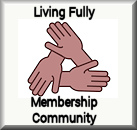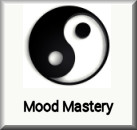As I see about 20 couples a week, it is fascinating to note the similarities as they go through their different stages and what they are grappling with in those stages. I like Susan Campbell’s research on intimacy that came out in 1980 which she entitled, the Five-stage Couple’s Journey Map. She looks at relationships as a way for us to grow into more wholeness with ourselves and each other as each stage calls for different pieces of ourselves to take the centre stage in our relationships. When they do and we are able to meet the demands of that stage, we expand our knowledge of ourselves and each other and our self-concept expands as well.
As Dr. Campbell says in her book, The Couple’s Journey, “During the romance period, our “optimist”, our “visionary”, or our “seeker of harmony” may prevail. Later, when power issues emerge more clearly, we may give free reign to our “fighter” or our “negotiator” (p.115). I certainly see this in couples and notice that they can often get stuck when a characteristic is called for that they find difficult or was not modeled for them as a child. It is so helpful to see your marriage as a journey. I have seen couples quit on their relationship within weeks. I also see others who are so stuck on one issue that they are unable to get past that one issue and want to divorce, not understanding the dynamics of the power struggle stage and how the journey brings positive changes. Dr. Campbell’s five stages are:
1. Romance 2. Power Struggle 3. Stability (a need to look inward for the source of conflicts, not outward – a need for me to accept those parts of you that I have wanted to change – a need to forgive you for not being ideal). 4. Commitment (a learning to choose – assertiveness and yielding – an understanding begins to develop that I can be fully me and still support my partner’s development – a rising to a place of mutual cooperation). 5. Co-Creation (a vision of my relationship as part of a greater whole that has meaning in the greater context of life).
Each stage has its pitfalls, of course, that are resolved on an ongoing basis. Each resolution builds on the one before. This growth in the relationship and within the individuals happens with a set of growth principles that I talk about in other articles, such as courage, respect for differences and the ability to be interdependent among many others. Can you see yourself in these stages and where you get stuck?





